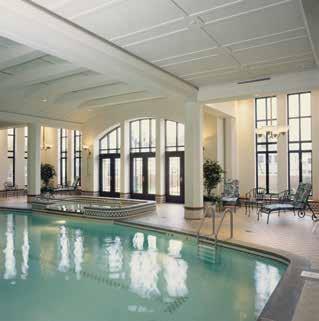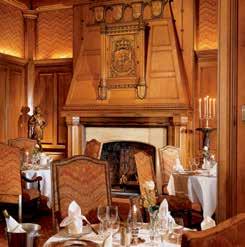
18 minute read
Murphy’s camping laws
Murphy’s camping laws (and other stories) IT JUST TAKES INCENTIVE
BY CHANTAL MACARTNEY A loaded minivan pulled into the only remaining campsite. Four children leaped out and began feverishly unloading gear and setting up the tent. The boys rushed to gather firewood, JOKES AND COMICAL stories are great to hear or tell while the girls and their mother set up the camp stove and while trekking a hot dusty trail, or around the campfire after cooking gear. another great day. Here are some to keep everyone smiling A nearby camper marvelled to the youngsters’ father, “That’s – perhaps even Murphy! some display of teamwork.” The father replied, “I have a system – no one goes to the DON’T BE TOO ANALYTICAL bathroom until camp is set up.”
Advertisement
Sherlock Holmes and Dr. Watson went camping. After a good meal and a bottle of wine, they lay down for the night CAMPER COMMENTS and went to sleep. Hours later, Holmes awoke and nudged Following are real remarks on National Park comment cards, his friend. written by backpackers just in from wilderness trips:
“Watson. Look up and tell me what you see.” • Trails need to be reconstructed. Please avoid building trails Watson replied, “I see millions of stars.” that go uphill. “Yes, but what does that tell you?” Holmes asked. • Too many bugs, leeches, spiders and spider webs. Please
Watson pondered for a minute. “Astronomically, it tells spray the wilderness to rid the area of these pests. me that there are millions of galaxies andpotentially billions • Consider paving the trails so they can be plowed in winter. of planets. Astrologically, I observe that Saturn is in Leo. • The coyotes made too much noise last night and kept me Horologically, I deduce that the time is approximately awake. Please get rid of these annoying animals. a quarter past three. Theologically, I can see that God • The places where trails do not exist are not well marked. is all powerful and that we are small and insignificant. Meteorologically, I suspect we will have a beautiful day CAMP COMMODITY tomorrow. “What does it tell you?” An elegant, delicate and proper lady was planning a camping
Holmes was silent for a minute, and then spoke. “You trip to a new park. Before making reservations, she wanted to idiot! Someone stole our tent.” find out about the toilets. But, she mused, “How do you ask this question in a polite way?” She just couldn’t write the word MURPHY’S OUTDOOR STRATEGIES AND “toilet” in her letter to the ranger. CAMPING LAWS After much thought, she decided on the old-fashioned term • Want to keep neighbours away in a public campsite? “bathroom commode.” But seeing the word in print, she thought
Put a tuba on your picnic table. that even it looked rude. Finally, she rewrote the letter referring • A potato baked in the coals for an hour makes a tasty, to the bathroom commode as the “BC.” nutritious side dish. A potato forgotten in the coals for “Does the campground have its own BC?” she asked politely. three hours makes an excellent hockey puck. When the park ranger got the letter, the meaning of “BC” • Bells provide some element of safety for hikers in bear stumped him. After considerable thought, he decided that the country. Of course, it’s hard getting them on the bears. lady must be asking about the local Baptist Church. So he wrote • Want to duplicate the warmth of a down-filled sleeping the following reply… bag, but at half the price? Climb into a plastic garbage Dear Madam: bag with several geese. I regret very much the delay in answering your letter, but • Any pebble that finds its way into your hiking boot I now take pleasure in informing you that a BC is located will migrate to the point of maximum pressure and 16 kilometres north of the campground, discomfort. and is capable of seating 250 people • Your side of the tent is always the one that leaks. at one time. I admit it is quite a • The width of backpack straps decreases with the distance distance if you are in the habit hiked, while backpack weight increases. of going regularly, but you will • The sun sets 3 1/2 times faster than normal when you’re be pleased to know that many trying to set up camp. park visitors take their lunches • When you are in a sleeping bag, the need to pee is along and make a happy day of it. inversely proportional to the amount of clothing worn. They usually arrive early and stay late. It is such a beautiful facility and the acoustics
3200 LAKES. WATER YOU WAITING FOR?
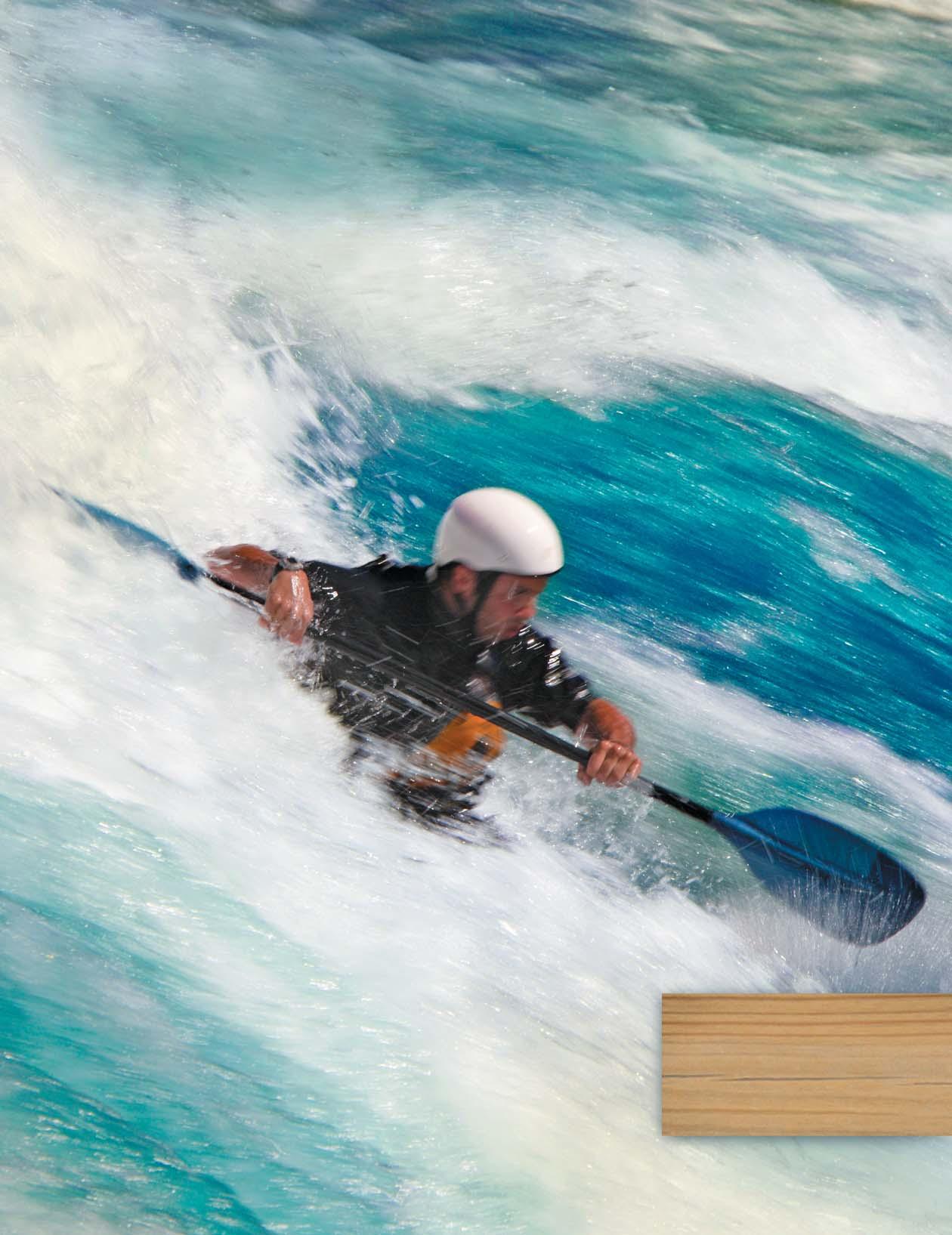
are marvellous! Even the smallest triumphant sound can be heard by all.
The last time my wife and I attended, it was so crowded we had to stand up the whole time we were there. It may interest you to know that right now a supper is planned to raise money to buy more seats. It’s going to be held in the basement of the BC.
It pains me not to be able to go more regularly, but it’s certainly not because
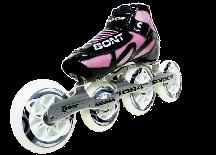
of a lack of desire on my part. As we grow old, it seems to take more effort.
If you do decide to visit our park, perhaps I could go with you the first time, sit with you, and introduce you to all the other folks. Remember, this is a friendly community. Sincerely, Park Ranger ≈ Do you have a joke you’d like to share? E-mail it to MyJoke@OttawaOutdoors.ca. We’ll print the best ones in the next issue, and give you credit.
GET INLINE SKATING
THIS SUMMER Zt SPORTS
• mfc’s bont, mogema, powerslide, mater wheels, supersonic, hyper • canada’s largest independent for all your inline and ice speedskating equipment • expertise in custom made and custom fitting speed skates 613-226-7007
Email orders to ztsports@sympatico.ca

fittings by appointment

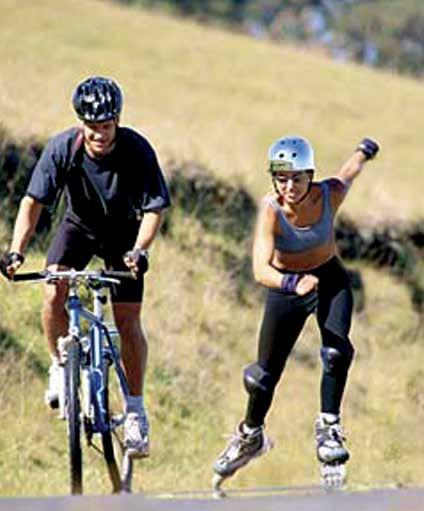
MT.BIKES HYBRIDS ELECTRIC BIKES
5 HAWTHORNE AVE. AT PRETORIA 567-8180 cycosport@on.aibn.com
Your source for bikes, repairs and much more. Rentals too!










Lost and scared: wilderness Survival 101
BY CHANTAL MACARTNEY
WHERE’S THE TRAIL? It just seemed to disappear! You don’t want to be asking this question, but when you do, the adrenaline rushes through your body. Your eyes shoot around the forest looking for others in your group and you strain to hear them. But silence reigns, except for the thumping of your heart. The trees seem to close in.
We’re not making this up. It’s happened to virtually every person associated with this magazine.
Before you find yourself out on this limb, consider this: wilderness survival usually involves only five important elements. Five. Once you’ve got them down, not only will you be able to survive on your own almost anywhere for many days, but your confidence and enjoyment of the wilderness should soar. These five survival elements (in order of importance) are: • Attitude • Shelter • Water • Fire • Food. Let’s take a look at them.
A POSITIVE ATTITUDE
Nothing is more important for survival in the outdoors than a positive attitude. Pessimism will stop you dead. Panic and fear will close in, short-circuiting any creative thinking, making you act irrationally. But positive attitude involves more than a “can do” motto. “Can do” won’t do in most survival situations; however, a little preparation will keep you warm, comfortable and happy – even if lost for days.
Preparation involves reading one or two books (or maybe just several articles) on survival, then thinking about what you read and how to apply it. Survival won’t be a mystery to you the more you read about it. This preparation will build a positive attitude based on the real strength that comes from knowledge – something that will keep you focused and calm.
After you read about the subject, make a survival kit and keep it in a fanny pack that you take everywhere in the woods. Include a signalling whistle, waterproof matches and a lighter (two separate ways to start a fire), a candle, one or two or three large brightly coloured orange garbage bags, Band-Aids, a small space blanket, a pocket knife, fishing line and hooks (in a film canister), fire starter (in another film canister), 10 metres of thin cord, and an all-important tin of sardines (more on this later).
But what happens if you do get lost?
Sit down and wait for rescue. Don’t try to walk out even if you have a map and compass. Fear and confusion – constant companions of lost people – can degrade any abilities you have to find a trail with a compass.
Alarm may be your first impulse after discovering the painful truth of your predicament. If you sense rising panic, break it immediately. Speak out loud – yell if you must – commanding yourself to stop and sit down. Then eat something. This combination of stopping and eating will halt any natural panic tendencies. You’ll gain control, and start to think rationally. And directed activity will improve your situation.
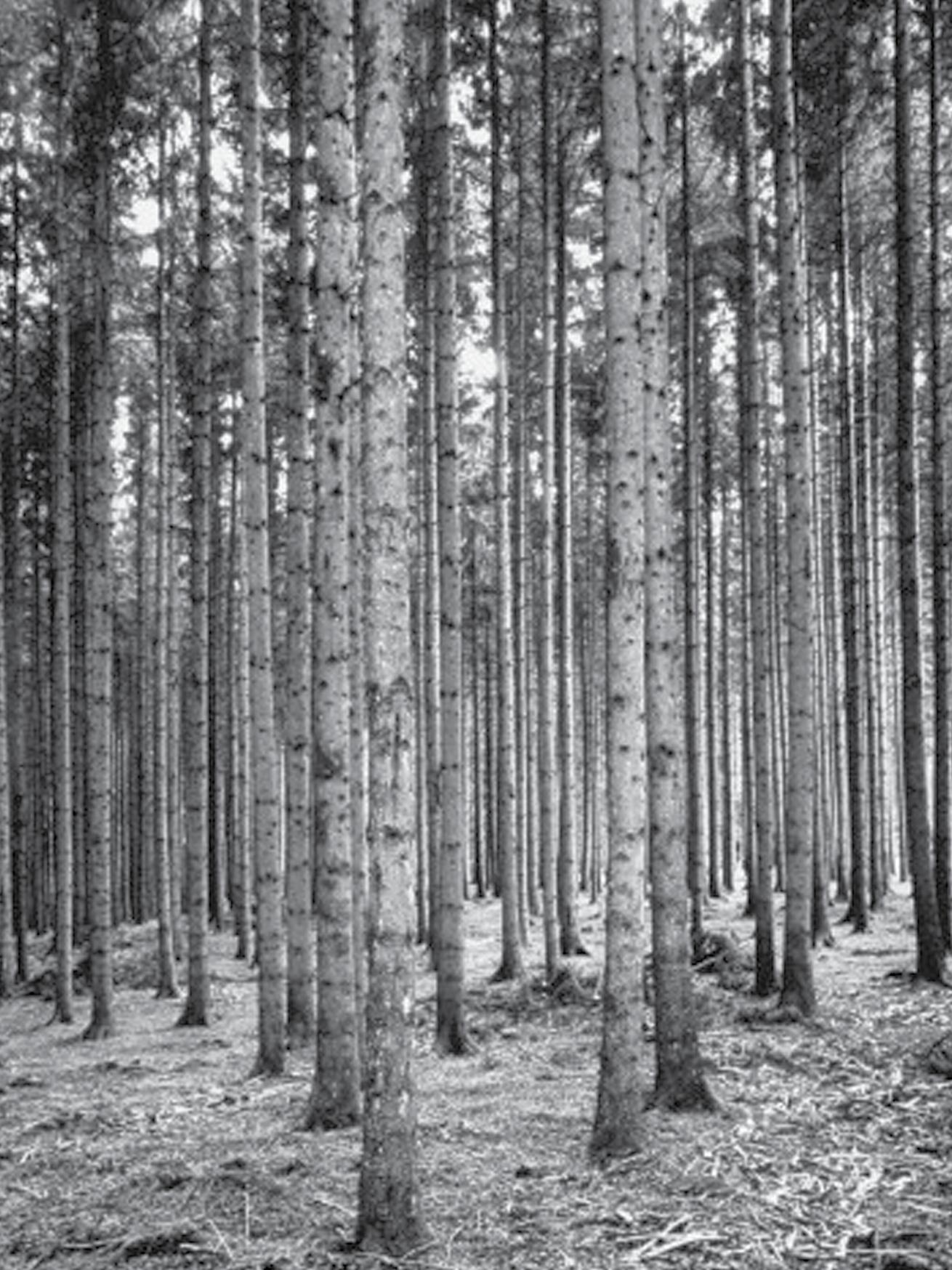
SHELTER
Seek temporary shelter from wind, rain or snow, but stay as visible as possible for rescuers. The simplest shelter is best. There are many natural shelters in the forest (e.g. blown over trees, rock overhangs). Look for them next time you’re taking a walk in the woods.
Those large orange garbage bags have multiple uses if you get lost, and they’re highly visible too. Slit one lengthwise and across the top to make an improvised tarpaulin. Either sit under it, or let branches support it to make a makeshift tent. If it’s raining, then pull one over
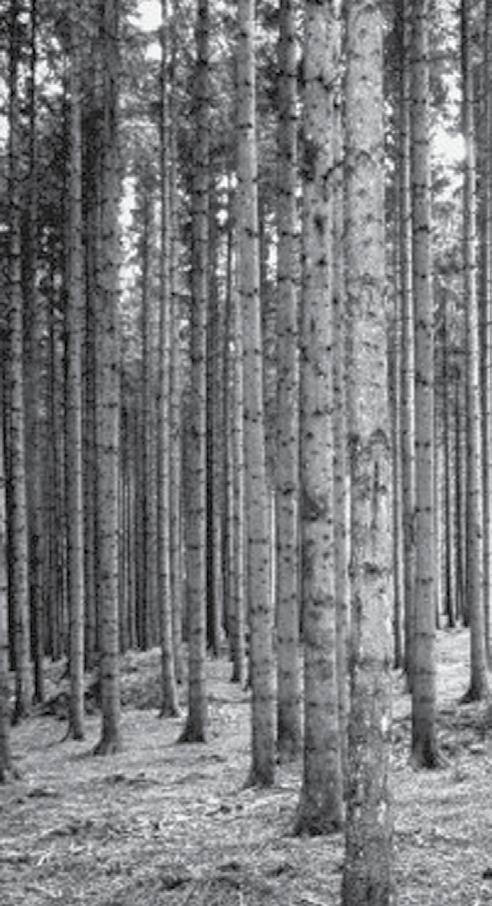
your head, after making slits for head and arms for a raincoat. If it’s cold out, tie the bottom of your improvised raincoat closed with cord from your survival kit, then stuff the garbage bag with leaves until you look like the Pillsbury doughboy. You might look funny, but all those leaves will have the same effect as a warm down coat.
If it’s raining and cold, stuff the leaves into your shirt and sleeves.
Your space blanket – silvery-coloured and able to reflect body heat – will also provide excellent shelter.
If it appears that you’re going to be stuck in the woods overnight, start working on a plan – steps to take that will make you comfortable and warm. The mere act of doing this will boost morale and increase your chances of getting found soon. Look for a natural shelter. If you can’t find one, make a lean-to with sticks and coniferous branches. Ensure the doorway faces south, for slightly added warmth. Also mark your shelter clearly visible for rescuers. Find rocks or green boughs, and spell out S-O-S in an open area.
PHOTO BY RF STOCK
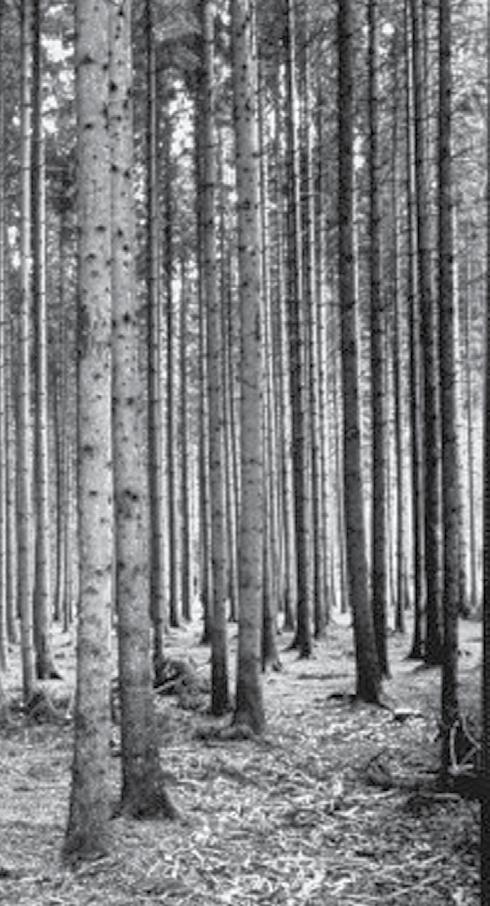
WATER
One of the first things people worry about before and after they get lost is food. Yet water is far more important. Water makes up about 85 per cent of our bodies; we can’t survive long without it. Luckily, Canada is awash in water with hundreds of thousands of rivers, lakes, streams and marshes. In the Ottawa area, walk one kilometre in any direction and you’ll probably find some form of water. Of course, running water (e.g. a stream or river) is better than still-lying water. Movement keeps it cleaner and fresher.
What if you can’t find water, but you’re near an open meadow? Then you can “harvest” the morning dew. Take off your shirt and rub it on the grass. Wring it out and collect it where you can (e.g. a garbage bag or an extra water bottle).
Ration your water, and fill your water bottle at every opportunity.
FIRE
Fire will keep you warm, signal your position to rescuers, and lift your spirits. If there is enough wood to burn, keep a fire going at all times. With your survival
kit, you have two different ways of starting a fire: waterproof matches and a lighter. If one doesn’t work because of a broken flint or crushed match heads, you’ll have a backup ready.
Even during wet weather you’ll find material to start a fire under thick trees. Use pinecones, dry leaves or evergreen needles to get the fire going. These will burn fast, but will help ignite dry branches that you use to feed the flames. Flames will ignite much faster if you use the candle in your survival kit. Simply break off a tiny stub of it and place it under your fire-starter.
If your lighter and matches somehow won’t work, and the sun is shining brightly, use an eyeglass lens (or one from a set of binoculars) to focus the sun’s energy on a tiny dot of dry, burnable material. It works.
Reflect the heat from your fire back to you by building up a small (30 centimetres high) rock or log wall beside the fire. Or set up a space blanket well clear of the flames – not too close or it could ignite from wind-blown sparks.
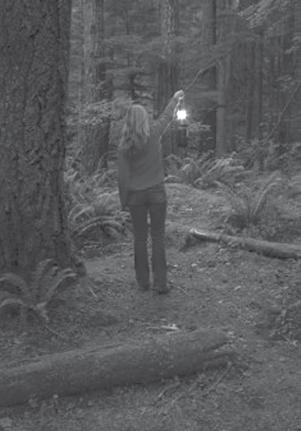
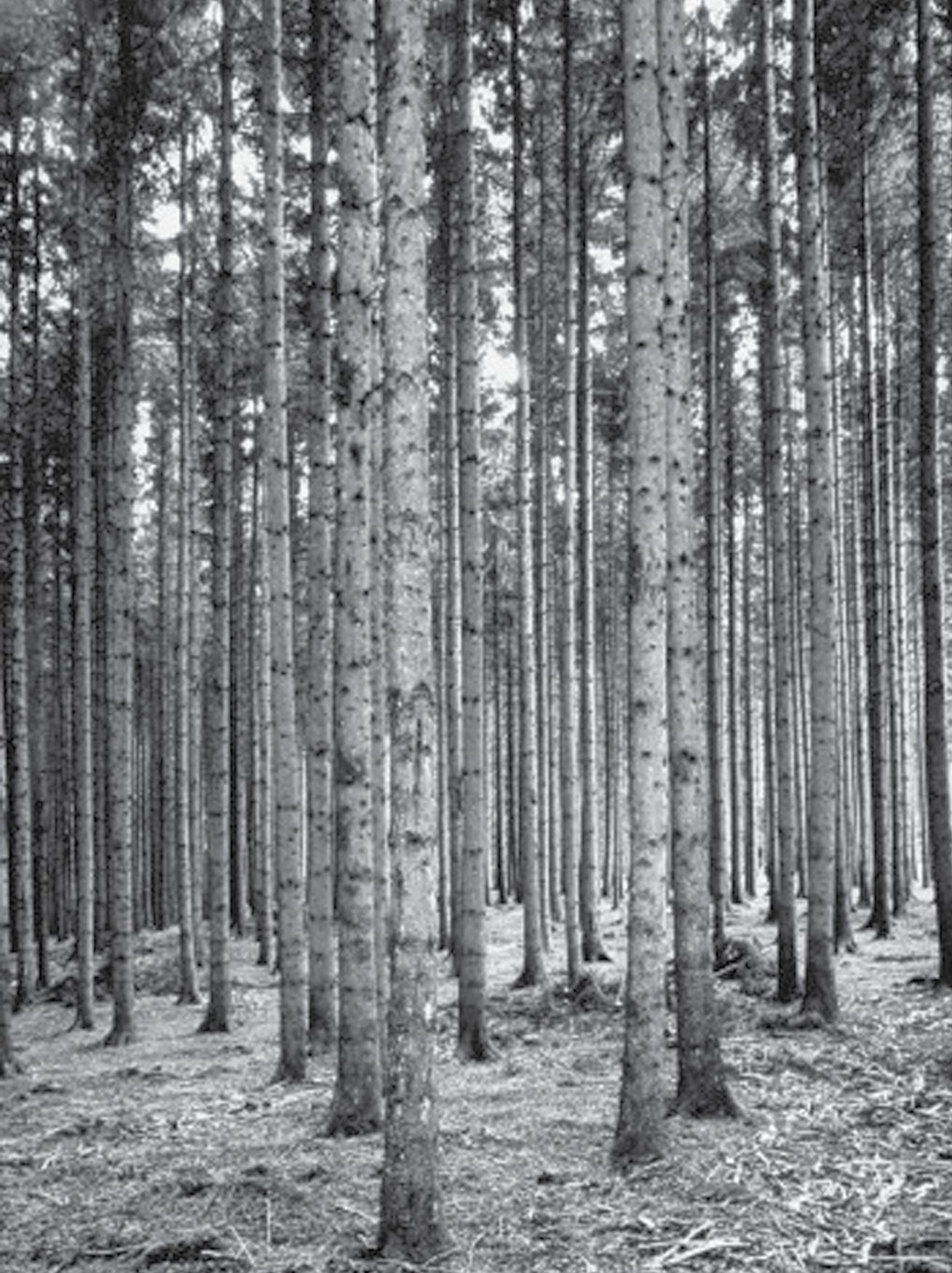
FOOD
Although it seems like the most important element of survival, food is actually the last thing you should think about if you get lost. The human body can last a surprisingly long time without food – in fact many weeks.
Remember the tin of sardines in your survival kit? Sardines are not something that most people would snack on. That means (unlike a chocolate bar or delicious nuts), three or four years after you put sardines into your survival kit, you’re likely to still find them there – guaranteed! High in protein and soaked in oil, sardines will give your body the necessary nutrients to boost energy levels when most needed. They also make great fishing bait.
Of course, you’ll also probably have granola bars, raisins and perhaps even a sandwich in your pack. Ration these carefully, unless you’re in a highly traveled area. Food gives you energy and a sense of well-being. If you get anxious or fearful, your energy can drain very quickly leaving you tired and irritated, and much more susceptible to making foolish decisions. Before you reach this point, have a snack.
If you think you might be in the forest for some days, eat nothing the first day. Conserve what you have. Take an inventory of your food, dividing it into small, equal parts. Then, decide when you will eat each, spacing it out evenly. And eat slowly. That will not only fool your body into thinking it’s getting more food, but also satisfy your hunger.
PASSING THOUGHTS
Survival. Usually it all comes down to these five elements. The more you know about them, the less mysterious outdoor survival becomes.
Before heading out on a trip, research the area where you’ll be. Visitor’s Centres have lots of information including maps, pamphlets on wildlife, and trails. You can also find information on the Internet or by asking people who have already traveled in the area. Go prepared. That way, you’ll enjoy the trip more and minimize the possibility of getting lost.
It can happen to anyone: hikers, cyclists, canoeists and skiers. Even someone with lots of outdoors experience can make a careless decision and end up lost. If it happens to you, don’t be too impatient to get back home. Impatience leads to carelessness, which in turn leads to risks and accidents. Sit down, stay calm and wait for rescue. Then repeat these five words: attitude, shelter, water, fire, food. Clear thinking and a prepared attitude are the most important factors to survival.
Good luck! ≈ Chantal Macartney is a regular contributor to Ottawa Outdoors Magazine, and an avid canoeist, cyclist and hiker.
Staying fit, bit by bit
BY COLIN PEDEN
OUR LIVES ARE dominated by speed, our communication is instantaneous, and our ability to take a moment for ourselves is squeezed; there never seems to be enough time. With 1,440 minutes in each day, it shouldn’t be hard to find the 30 minutes of daily physical activity recommended by fitness experts. But for most people, this half hour falls by the wayside in a life dominated by family, work, errands and our daily routines.
Does this mean that people with busiest schedules are doomed in their quest for a healthy lifestyle? Here’s the good news: There’s hope, even for those under the most pressure. The key is to make staying fit as convenient as possible.
One of the biggest reasons why people slide into inactivity is that we assume exercise is successful only when we commits hours and hours to it. When such ample time is not available, many people consider fitness a lost cause, and abandon exercise. But what alternatives – other than hours at the gym – could someone include in a daily routine? Here are a few easy ways to include physical activity during your day.

AT HOME:
• Make household chores count; work at a fast pace to get your heart pumping. • Go for a walk after dinner rather than collapsing in front of the TV with a full belly. • Try working in the garden or mowing the lawn. Gardening burns up to 300 calories an hour, and builds strength. • Enlist the dog. Instead of just letting your pet out, take him or her for a brisk walk.
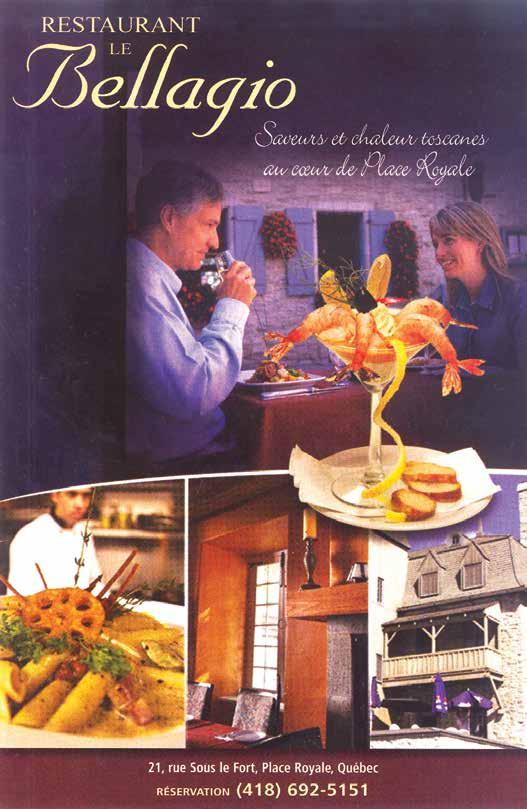
AT WORK:
• If you ride the bus, get off a few blocks before your workplace. • If you drive, park further away from the office. • Take the stairs rather than the elevator, or get off a couple of floors early. • Take a walk rather than a coffee break. • Start a lunchtime walking group (see the article in this issue about four downtown walking routes on page 3), or team up with a friend to squeeze a walk in.

By including a few of these brief activities in your day, those 30 minutes of activity may not be as tough as you thought to achieve. Look at your day, be creative with opportunities as they present themselves, and be as active as you can. (And try for some weekly structured exercise as well to reinforce the daily bits.) You’ll be pleasantly surprised at how you look, and more importantly, how you feel. ≈ Colin Peden, B.Sc. has been involved in health and wellness counselling for many years. He currently is a managing partner with Executive Fitness Leaders.
ONLY A SHORT DRIVE FROM OTTAWA, BEAUTIFUL QUEBEC CITY AWAITS YOU.

In the heart of Quebec City lies Château Frontenac.
Welcome to Fairmont Le Château Frontenac. Standing high on a bluff overlooking the mighty St. Lawrence River, Fairmont Le Château Frontenac is not merely a hotel located in the heart of Old Québec – it is the heart of Old Québec. Offering exquisite dining opportunities, superior meeting facilities and a distinctive European charm, this stately hotel stands above historic Old Québec, a United Nations World Heritage Site. • A stay at the château permits you easy walking access to all of the wonderful sites and facinating historical areas that Old Québec has to offer. • A visit at this restored heritage hotel will guarantee you a memorable and inspiring experience in one of the most beautiful cities in the world.
To book your weekend escape, please visit www.Fairmont.com, telephone 1(800) 441-1414, or email ChateauFrontenac@Fairmont.com.


